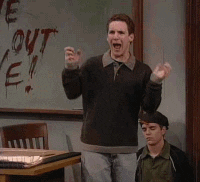REPOST: ScienceDirect, "Robustness of Black Americans’ Support for the Police..."
This study was shared by Julian McBride, aka @juliananthro2 on Instagram. My intros are too long, so I’ll just say: 1. Give Julian a follow 2. Don’t let people insist what groups think, especially when there is data.
Link: https://www.sciencedirect.com/science/article/abs/pii/S0047235224000357
Note: Though I can access the full article through my University email, I didn’t get permission to reshare it. So I’m only sharing what they have publicly available already. Please visit the original article or reach out to the authors if you want to read the whole study.
On the Robustness of Black Americans’ Support for the Police: Evidence From a National Experiment
Journal of Criminal Justice: Volume 92, May–June 2024, 102186
Author: Linda Balcarová, Justin T. Pickett, Amanda Graham, Sean Patrick Roche, Francis T. Cullen
Highlights:
Most Black Americans want to maintain or increase police patrols.
Most Black Americans want to maintain or increase police spending.
Even if crime declines, most Black Americans want police patrols and spending.
Even absent new reforms, most Black Americans want police patrols and spending.
Black Americans’ policing preferences may be firmer than those of other groups.
Abstract:
Recent polls reveal a complex picture of policing attitudes in Black America. Although most Black Americans are afraid of the police, most also prefer to maintain (or increase) local police presence and spending. Are these paradoxical policy preferences artifacts of the questions used in Gallup and Pew polls—questions that fail to disentangle assumptions about trends in crime and police reform? We tested this experimentally using a nationwide survey (N = 1,100) with comparable numbers of Black (N = 511) and non-Black (N = 589) respondents. We found that Black Americans’ policing preferences were robust—if anything, they were more robust than those of non-Black Americans. Most Black Americans said that even if crime was declining and new police reforms were not enacted, they would still prefer to maintain (or increase) police patrols and spending. Both fear of police and perceived procedural justice predicted policy preferences, regardless of respondents’ race.
Section snippets
The Racial Divide in Public Opinion on Policing
The leading model of racial differences in policing attitudes is the group position thesis—specifically, its extension to the analysis of civilians’ relations with social institutions (Weitzer & Tuch, 2006). The thesis suggests the existence of a racial-hierarchical structure in American society and posits that the groups situated at the top of the hierarchy (e.g., White Americans) should be more inclined than marginalized groups to support and align themselves with the police. The underlying
The Racial Divide in Public Opinion on Crime
Decades of research have shown that Black Americans also differ from White Americans in their anxieties about crime (Collins, 2016; Hale, 1996; Pickett et al., 2022). Evidence suggests that Black Americans are more concerned than other racial groups about both local and national crime (Thomas & Hyman, 1977), and that crime is least salient as a social problem among White Americans (Shi, Lu, & Pickett, 2020). For example, in 2018, Black Americans (38%) were roughly twice as likely as White
The Current Study
The existing literature indicates that Black Americans are afraid of the police and afraid of crime—more so than other racial groups. Single-item questions from major polling houses (e.g., Gallup, Pew Research) indicate that despite perceiving racial bias in American policing, Black Americans do not want to reduce police presence or funding, which may reflect the influence of competing safety concerns (i.e., fear of police vs. fear of crime) contextualized by assumed trends in police reform and
Data and Methods
To investigate public support for maintaining local police presence and spending, the current study uses data collected from a nationwide survey of American adults (N = 1,100), which was administered through YouGov from April 21 to May 2, 2022 (Pickett et al., 2024). Previous studies have described YouGov’s sample-matching methodology (Ansolabehere & Rivers, 2013), which was designed to yield online samples that closely resemble the adult U.S. population, and have demonstrated that the
Experimental Procedure
We used a between-subjects “question context” experiment (see Gilens, 2002, p.238). Specifically, respondents were randomly assigned either to a control group or to one of four treatment groups. The control group received the Gallup and Pew Research questions about preferred patrolling time and local police spending. The treatment groups received these same questions but in different information contexts, which were defined by alternative trends in crime rates and accountability-based policing
Fear of the Police
Beyond the question-context manipulations, we also measured several other independent variables that existing research and theory indicate may be related to policing attitudes (Pickett et al., 2022; Weitzer & Tuch, 2006; Wolfe et al., 2016). First, we measured emotional responses to police and crime using fear scales from recent studies (e.g., Burton et al., 2021; Pickett, Graham, & Cullen, 2022, Pickett, Graham, Nix, & Cullen, 2024). The first was personal fear of the police (Pickett, Graham,
Results
The first portion of the analysis examines the prevalence of different policing attitudes, by race. Here, we examine the distribution of responses to four survey questions about policing: preferred patrolling time, preferred police spending, expected police reforms, and perceived trends in police racism. The distributions are shown in Figure 1, separately for White respondents, Black respondents, and other racial/ethnic minorities in the sample.3
Conclusion
Recent polls have revealed a complex picture of public opinion toward the police in the United States (Coleman, 2020). Black Americans express very high fear of the police, both in absolute terms and when compared to other racial/ethnic groups (Graham et al., 2020; Pickett et al., 2022). Yet, paradoxically, Black Americans also say they prefer to maintain (or even increase) local police presence and spending (Parker & Hurst, 2021; Ramirez, 2015; Saad, 2020). One possible explanation for this
Credit authorship contribution statement
Linda Balcarová: Writing – review & editing, Writing – original draft, Formal analysis. Justin T. Pickett: Writing – review & editing, Writing – original draft, Formal analysis. Amanda Graham: Writing – review & editing, Funding acquisition, Project administration. Sean Patrick Roche: Writing – review & editing, Project administration. Francis T. Cullen: Writing – review & editing.






